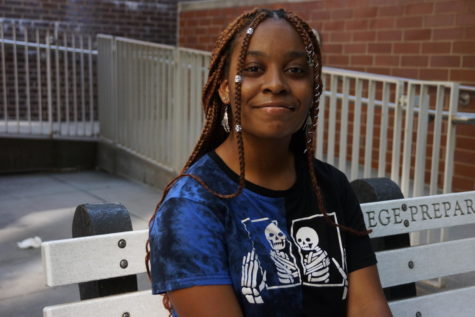Activism isn’t a luxury
The Jones community has more liberties than it realizes
Like most things on social media, civil rights movements of all kinds have become trends that people follow for a few weeks or months and then forget about them. Performative activism has become a social epidemic that despite the name, can have negative repercussions. The hyperactive sense of urgency surrounding becoming an “activist” and having something to fight for has led to a wide spread of false information along with bandwagon and reactionary activism.
At Jones, students generally have the right intentions when it comes to advocating for their beliefs and pushing for change, but the message is not always conveyed in the best way. The rush to act fast and receive instant gratification often overshadows the original cause and ultimately diminishes the integrity of the movement. The absence of caution, sensitivity, and self-awareness that is present in an overwhelming amount of activism at Jones stems from, students and staff alike, having only a surface level knowledge on the issue. This is due to numerous reasons, but the most focal one in the Jones community is the lack of experience.
When the activist is personally affected by the cause that they are fighting for, they tend to have more details, accuracy, and passion in their display of activism. Since a majority of the institutionalized and systemic oppressions present in Jones are inherently targeted towards Black students, who make up approimately 11.7% of the Jones student body as of 2020, the mass of the school is relying on second-hand experiences to base their views off of. Without first-hand experiences people may misinterpret what they are being told and portray the wrong message, damaging the objective of the movement. Although it is rarely done intentionally, advocates outside of the oppressed community at hand can have the tendency to speak over the people that are affected the most by the problem.
With teenagers and young adults looking to become activists, it is almost inevitable that they will be a part of a movement that does not directly affect them. This alone is not the issue. The problem arises when allies skew the intention of the movement to meet their own objectives and then stop advocating once the “trendiness” of the cause has passed. Oppression and discrimination are not short-term dilemmas; they affect people for a majority of their life and do not go away just because they are no longer in the media spotlight. So they should not be treated like temporary problems.
The ability to stop fighting for a cause and forget about it comes from privilege. This short term attention to civil rights movements is commonly labeled as bandwagon activism. This can be seen at Jones when students hyper fixate on certain issues and then it is only talked about again in passing. In doing this students unconsciously minimize the issue. The order of events usually follows as such: events happen that cause the issue to trend, students localize the issue and speak on how it relates to Jones, administration comments on the issue, and nothing changes. The demand of instant gratification does nothing for movements and is simply performative.
While displays of support do generate more attention for a cause, the almost immediate disbanding of members makes the movement become stagnant. Instead supporters, especially in the Jones community, should commit to helping to further causes because they care about the outcome and not for social capital. People should fight for causes that speak to them and not the ones that are trendy. If people only advocated for causes that they actually cared for, there would be more authenticity and consistency in the world of activism.
Graphic by Akira Sinnott ’22

Akira is a senior and the Opinion Editor. She can be found practicing phlebotomy or playing soccer. Her favorite color is red and she is so excited to...




